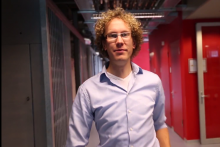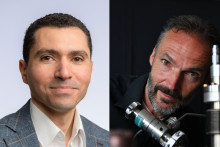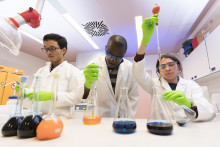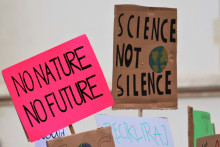Visser who finished his PhD thesis ‘Fundamentals and applications of fast micro-drop impact’ at the end of 2014, gained a lot of attention with his results on 3D-printing of copper and gold. In the beginning of 2016, he therefor won the UT prize for the most successful PhD in the media (photo with UT chairman Victor van der Chijs). As soon as 3D printing is possible for a range of other materials than plastics, the number of possible applications will grow rapidly – beyond the hype. During his time at the Wyss Institute for Biologically Inspired Engineering at Harvard, Visser will specifically look at 3D printing of living cells.
Sixteen researchers
NWO stimulates mobility of young talented researchers with the Rubicon grant. They can do research at a top institute abroad, for a maximum period of 24 months. Every year, about 60 Rubicons are granted, for a total sum of about 7 million euros. In this first round of 2016, sixteen researchers receive the grant. Rubicon is named after the river that Julius Caesar crossed before his series of victories about which he said ‘Veni, Vidi, Vici’. Those three words are also the names of three NWO research grants.
The NWO press release can be found here.







